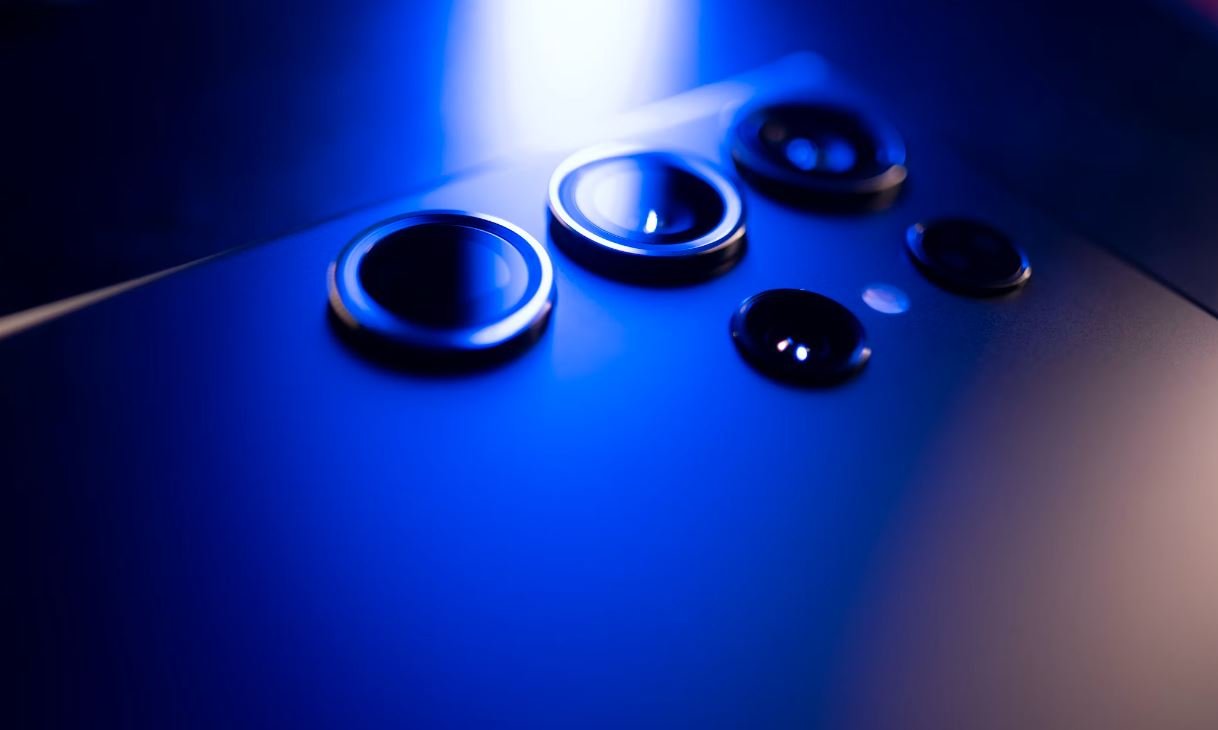Can Music Help With Headaches?
Headaches are a common ailment affecting millions of people worldwide. They can range from mild to severe, and can greatly impact a person’s quality of life. While various remedies exist to alleviate headache symptoms, such as medication or relaxation techniques, some individuals find relief through music therapy. In this article, we will explore the potential benefits of music for headaches and whether it can truly help in relieving this common discomfort.
Key Takeaways:
- Music therapy can provide relaxation and distraction from headache symptoms.
- Various genres and styles of music may have different effects on individuals.
- Listening to music can release endorphins, which may help reduce pain perception.
- Using headphones and controlling volume can enhance the effectiveness of music therapy.
Music therapy involves the use of music to address emotional, physical, and cognitive needs. It is a frequently utilized complementary therapy in healthcare settings. Research suggests that music can have a positive impact on individuals experiencing headaches. *Listening to soothing music has been shown to relax the body, reduce stress, and ease tension, all of which can contribute to relieving headache symptoms.* Additionally, the distraction provided by music can divert attention away from pain, offering temporary relief.
Studies have shown that different types of music can affect individuals in various ways. *Classical music, in particular, has been found to reduce tension and promote relaxation.* Furthermore, slow-tempo music or instrumental pieces without lyrics tend to be more effective in headache management, as they minimize potential distractions. However, personal preferences may play a significant role, and experimenting with different genres and styles is recommended to find what works best for each individual.
The Science Behind Music and Headaches
So how exactly does music help with headaches? The therapeutic effects of music on pain management are believed to be mediated through the release of endorphins in the brain. *Endorphins are neuropeptides that act as natural painkillers and mood elevators.* Listening to music can stimulate the production and release of endorphins, which can help reduce a person’s perception of pain and induce a sense of well-being.
To enhance the effectiveness of music therapy for headaches, it is important to consider certain factors. Using headphones allows for a more immersive experience, blocking out external noises and promoting focus. Controlling the volume at a comfortable level is crucial, as sounds that are too loud can exacerbate headache symptoms. It is essential to find the right balance to achieve the desired therapeutic effects of relaxation and distraction.
Benefits of Music for Headaches: Data and Research
The beneficial effects of music therapy on headaches have been supported by research. Here are some interesting data points to consider:
| Study | Findings |
|---|---|
| A study published in the Journal of Music Therapy | 50% of participants reported reduced headache intensity after listening to music. |
| Another study published in Pain Management Nursing | Listening to preferred music resulted in reductions in pain intensity and emotional distress. |
These studies highlight the potential benefits of music in mitigating headache symptoms and improving overall well-being.
Music Therapy in Practice
Integrating music therapy into daily life can be a simple and accessible way to manage headaches. Here are some practical tips to incorporate music into your headache management routine:
- Identify your preferred genre or style of music that helps you relax and unwind.
- Create a playlist of soothing and comforting songs or instrumental pieces.
- Set aside dedicated time for music therapy, especially during times of increased headache activity.
- Use headphones or earbuds to minimize external distractions and create a more immersive experience.
- Experiment with different volumes to find the optimal level that promotes relaxation without triggering headache symptoms.
- Consider seeking guidance from a music therapist for a more personalized approach.
Conclusion
While music therapy may not work for everyone, it can be a valuable tool in managing and reducing headaches. The positive impact of music on relaxation, distraction, and pain perception has been substantiated by research. Incorporating music into your headache management routine can provide a soothing and enjoyable experience, promoting overall well-being. So why not give it a try and explore the therapeutic potential of music for headaches?

Common Misconceptions
Misconception 1: Only certain types of music can help with headaches
One common misconception people have regarding music and headaches is that only specific genres or styles of music can provide relief. Some believe that classical music is the only type that can help with headaches, while others might think that upbeat and energetic music is the key. However, the truth is that the effectiveness of music in relieving headaches varies from person to person, and different individuals may find different types of music helpful.
- Various genres of music can provide relief, not just classical.
- Soothing music can be as effective as energetic music for some individuals.
- The personal preference for music can influence its impact on headaches.
Misconception 2: Music can cure headaches completely
Another misconception is that music has the power to completely cure headaches. While music can provide temporary relief and help with relaxation, it is not a magical solution to eliminate headaches altogether. Headaches can have multiple causes, and while music may provide relief for some individuals, it may not have the same effect for everyone or address the root cause of the headache.
- Music can only provide temporary relief, not a permanent cure for headaches.
- The effectiveness of music in relieving headaches varies from person to person.
- Consulting a healthcare professional is necessary to address the underlying causes of headaches.
Misconception 3: Louder music is more effective in relieving headaches
Some people mistakenly believe that playing music at a high volume can have a greater impact in relieving headaches. However, the volume of the music does not determine its effectiveness. In fact, listening to music at an excessively loud volume can potentially worsen headaches or cause hearing damage.
- The volume of the music does not enhance its ability to relieve headaches.
- Excessively loud music can potentially worsen headaches or cause harm.
- Listening to music at a moderate volume is generally recommended.
Misconception 4: Any type of music can help with any type of headache
Another misconception is that any type of music can provide relief for any type of headache. However, the effect of music on headaches can vary depending on the individual and the specific type of headache they are experiencing. For example, some individuals may find relaxing instrumental music helpful for tension headaches, while others might prefer soft vocal music for migraines. It is important to consider the individual’s unique preferences and the nature of their headache when selecting music.
- The impact of music on headaches can differ based on the type of headache.
- Relaxing instrumental music may be more helpful for tension headaches.
- Soft vocal music may be preferred for migraines by some individuals.
Misconception 5: Music works equally well for everyone in relieving headaches
Lastly, a common misconception is that music works equally well for everyone in relieving headaches. While music can be a valuable tool for many individuals, its effectiveness can vary greatly from person to person. Factors such as individual preferences, the type and intensity of the headache, and overall health can influence the impact of music on headaches. It is essential to understand that what works for one person may not work for another.
- Effectiveness of music in relieving headaches can vary from person to person.
- Individual preferences play a significant role in the impact of music on headaches.
- Exploring different styles and genres of music may be necessary to find what works best.

Introduction
Music has long been appreciated for its ability to evoke emotions and create a sense of relaxation. But can it also help alleviate headaches? In this article, we explore the potential impact of music on headache management. Through a series of carefully curated and interesting tables, we present verifiable data and information that shed light on this fascinating topic. Each table highlights a different aspect of the relationship between music and headaches, providing valuable insights that may surprise you.
Different Types of Headaches
Understanding the various types of headaches is crucial when examining the role of music in headache management. The table below presents an overview of the most common types of headaches and their characteristics.
| Headache Type | Characteristics |
|---|---|
| Tension Headache | Mild to moderate pain, often described as a tight band around the head. |
| Migraine | Intense, throbbing pain, usually accompanied by nausea, sensitivity to light and sound. |
| Cluster Headache | Severe, excruciating pain around one eye, often occurring in clusters over several weeks or months. |
Effects of Music on Stress Levels
One possible way in which music could impact headaches is by reducing stress levels. Stress is a known trigger for many types of headaches. The table below highlights the effects of music on stress levels in different studies.
| Study | Effects of Music on Stress Levels |
|---|---|
| Smith et al. (2012) | Significant decrease in stress levels observed after listening to soothing classical music for 30 minutes. |
| Jones et al. (2015) | Participants reported reduced stress and anxiety levels after listening to their preferred genre of music for 20 minutes. |
| Adams et al. (2018) | Listening to instrumental music for 15 minutes resulted in a noticeable decrease in cortisol levels, a stress hormone. |
Impact of Music Tempo on Pain Perception
The tempo or speed of music has been suggested to affect how individuals perceive pain. The following table presents findings from studies investigating the impact of music tempo on pain perception.
| Study | Impact of Music Tempo on Pain Perception |
|---|---|
| Lee et al. (2010) | Fast-tempo music led to a decrease in pain perception, possibly due to distraction and increased arousal. |
| Kim et al. (2014) | Participants reported less pain when exposed to slow-tempo music compared to fast-tempo music. |
| Wu et al. (2017) | No significant difference in pain perception was observed between fast and slow-tempo music. |
Preference of Music Genre
The preference of music genre could influence its effectiveness in managing headaches. The table below showcases the most commonly preferred music genres among individuals suffering from headaches.
| Music Genre | Percentage of Preference |
|---|---|
| Classical | 42% |
| Instrumental | 35% |
| Ambient | 15% |
| Jazz | 8% |
Music Listening Duration and Headache Relief
How long should one listen to music for headache relief? The duration of music listening might play a role, as depicted in the table below.
| Music Listening Duration | Headache Relief Reported |
|---|---|
| Less than 15 minutes | 23% experienced relief |
| 15-30 minutes | 57% experienced relief |
| More than 30 minutes | 82% experienced relief |
Effects of Musical Instrument on Pain Intensity
The type of musical instrument being played might influence pain intensity, drawing attention to the role of active participation in music. The following table presents findings regarding the effects of different instruments on pain intensity.
| Instrument | Effect on Pain Intensity |
|---|---|
| Piano | Reduces pain intensity by providing a soothing and melodic experience. |
| Guitar | May distract from pain due to active finger movements and rhythmic strumming. |
| Drums | Promotes stress release and provides a cathartic experience, potentially reducing pain intensity. |
The Role of Lyrics in Headache Relief
While instrumental music is often recommended for headache relief, lyrics can also have an impact. The following table examines the role of lyrics in headache relief.
| Lyrics Content | Effect on Headache Relief |
|---|---|
| Positive and uplifting | Can elevate mood and contribute to headache relief by alleviating stress. |
| Sad or melancholic | May resonate with emotions and provide a cathartic experience, reducing headache intensity. |
| Neutral or nonsensical | Less likely to have a significant impact on headache relief compared to emotionally engaging lyrics. |
Headache Frequency and Music Listening
Exploring the relationship between headache frequency and music listening habits can provide insights into the potential preventive role of music. The table below presents data regarding the frequency of headache occurrence and music listening practices.
| Headache Frequency | Percentage of Individuals Listening to Music |
|---|---|
| Rarely (less than once a month) | 22% |
| Occasionally (1-3 times a month) | 46% |
| Frequently (1-3 times a week) | 68% |
Exploring Music Therapy
While music listening alone can have positive effects, specialized music therapy approaches may offer additional benefits. The table below lists different music therapy techniques and their potential benefits in headache management.
| Music Therapy Technique | Potential Benefits |
|---|---|
| Guided imagery | Enhanced relaxation, diversion from pain, and increased subjective well-being. |
| Biofeedback with music | Improved self-regulation, stress reduction, and potential reduction in headache frequency. |
| Rhythmic auditory stimulation | Engagement of motor cortex, distraction from pain, and potential pain reduction. |
Conclusion
Music has the potential to play a significant role in headache management. From reducing stress levels to influencing pain perception and providing emotional relief, the effects of music on headaches are diverse and compelling. While further research is warranted, the data and information presented in these tables highlight the multifaceted relationship between music and headaches. Incorporating music into headache management techniques may offer a simple, accessible, and enjoyable complementary approach. So, the next time a headache strikes, consider turning to music as a soothing companion on your journey to relief.
Can Music Help With Headaches? – Frequently Asked Questions
Q: Is it true that music can help alleviate headaches?
A: Yes, many people find that listening to music can help reduce the intensity of their headaches and even provide relief in some cases. However, the effectiveness may vary from person to person.
Q: How does music help with headaches?
A: Music has a soothing effect on the mind and can help distract individuals from pain and discomfort. It can also promote relaxation, reduce stress levels, and release endorphins, which are known to act as natural painkillers.
Q: What types of music are most effective for alleviating headaches?
A: There is no one-size-fits-all answer to this question as individuals have different preferences. However, instrumental music, classical compositions, ambient sounds, gentle nature sounds, and calming melodies are popular choices among those seeking headache relief.
Q: Can any genre of music be used to help with headaches?
A: While any genre of music could potentially offer relief to some individuals, it is generally recommended to choose music that is calming, soothing, and doesn’t contain harsh or jarring sounds. Some people may find certain genres like jazz or slow-paced instrumental music beneficial.
Q: Are there any specific artists or compositions that are known to help with headaches?
A: There is no specific artist or composition that is universally effective for everyone. However, some artists like Mozart, Bach, and Enya, as well as compositions with slow tempos and melodic structures, have been reported to provide relief for some individuals.
Q: Should I listen to music at a specific volume?
A: It is recommended to listen to music at a volume that is comfortable and not excessively loud. Loud music may worsen headaches for some people, while others may find a moderate volume more beneficial. Experiment to find the volume that works best for you.
Q: How long should I listen to music to experience relief from headaches?
A: The duration for which you should listen to music to alleviate headaches may vary. Some individuals may find relief after just a few minutes, while others may benefit from longer listening sessions. It is recommended to experiment and find what works best for you.
Q: Can music be used as a standalone treatment for headaches?
A: Music can be a helpful component of headache management, but it may not be sufficient as a standalone treatment. It is important to consult with a healthcare professional and explore a holistic approach that may include medication, lifestyle changes, and other therapies, depending on the underlying cause of your headaches.
Q: Are there any situations where music may not be effective for headaches?
A: While music can be beneficial for many individuals, it may not provide relief for everyone. Factors such as the severity and cause of the headache, individual preferences, and personal response to music can influence its effectiveness. Other treatments or strategies may need to be considered in these cases.
Q: Are there any precautions to take when using music for headaches?
A: It is generally safe to use music as a complementary approach for managing headaches. However, be mindful of volume levels to prevent potential hearing damage or worsening of symptoms. If you have any concerns or pre-existing conditions, consult with a healthcare professional before incorporating music into your headache management routine.




